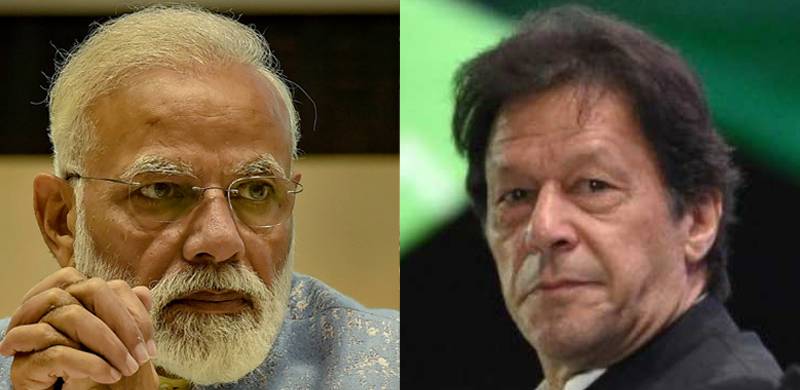
Despite Pakistan's gesture of releasing Indian pilot Abhinandan Varthaman, the fate of crisis between Pakistan and India still remains unclear as both nuclear powers would want to save face.
The crisis that started in the wake of Pulwama attack, which claimed lives of more than 40 Indian military troops, escalated when India intruded Pakistan's airspace and claimed that it had struck down Jaish-e-Muhammad hideout- a claim that was vehemently denied by Pakistan. Following this, Pakistan retaliated and shot down two Indian aircraft that had crossed the Line of Control (LoC) and captured Wing Commander Abhinandan Varthaman.
As Happymon Jacob said in the article written for The Hindu: "To begin with, by carrying out an air strike deep inside the Pakistani mainland, India crossed the redline, from the Pakistani point of view. It meant clear and present reputational damage for the Imran Khan government as well as the Pakistan military. Their retaliatory strike against India was something they felt compelled to undertake. On the Indian side, coming in the run-up to the general election, the Bharatiya Janata Party (BJP)-led government couldn’t have but responded to a terror attack that took the lives of 40 of its men in uniform. A military response was expected, but choosing to strike inside mainland Pakistan was perhaps not wise."
One could opine that both countries reacted in order to maintain their national reputations; Indian Prime Minister Narendra Modi would have appeared weak he had not reacted to Pulwama attack and that too when elections were nearing, while Prime Minister Imran Khan and military would have appeared weak had they not reacted to India violating Pakistan's sovereignty. Moreover, Pakistan also would not want to establish a new military normal as the country had let India go scot-free in order to maintain regional peace after "surgical strikes of 2016" but recurrence of these military actions would be unacceptable.
Initially, no one could have guessed that the crisis would escalate to this extent and still national reputations and domestic political considerations can play an important role in spiraling military stand-off out of control.
However, both countries can avoid escalation by opening backdoor channels of diplomacy, and mediation by a third country as was the case during the height of Kargil War.
It is pertinent to mention here that Foreign Minister Shah Mahmood Qureshi has already accepted Russia’s offer to mediate between Pakistan and India.
“Lavrov has offered to mediate. I don't know about India but I want to say this to Russia that Pakistan is ready to come to the table and de-escalate tensions,” Qureshi had said.
The crisis that started in the wake of Pulwama attack, which claimed lives of more than 40 Indian military troops, escalated when India intruded Pakistan's airspace and claimed that it had struck down Jaish-e-Muhammad hideout- a claim that was vehemently denied by Pakistan. Following this, Pakistan retaliated and shot down two Indian aircraft that had crossed the Line of Control (LoC) and captured Wing Commander Abhinandan Varthaman.
As Happymon Jacob said in the article written for The Hindu: "To begin with, by carrying out an air strike deep inside the Pakistani mainland, India crossed the redline, from the Pakistani point of view. It meant clear and present reputational damage for the Imran Khan government as well as the Pakistan military. Their retaliatory strike against India was something they felt compelled to undertake. On the Indian side, coming in the run-up to the general election, the Bharatiya Janata Party (BJP)-led government couldn’t have but responded to a terror attack that took the lives of 40 of its men in uniform. A military response was expected, but choosing to strike inside mainland Pakistan was perhaps not wise."
One could opine that both countries reacted in order to maintain their national reputations; Indian Prime Minister Narendra Modi would have appeared weak he had not reacted to Pulwama attack and that too when elections were nearing, while Prime Minister Imran Khan and military would have appeared weak had they not reacted to India violating Pakistan's sovereignty. Moreover, Pakistan also would not want to establish a new military normal as the country had let India go scot-free in order to maintain regional peace after "surgical strikes of 2016" but recurrence of these military actions would be unacceptable.
Initially, no one could have guessed that the crisis would escalate to this extent and still national reputations and domestic political considerations can play an important role in spiraling military stand-off out of control.
However, both countries can avoid escalation by opening backdoor channels of diplomacy, and mediation by a third country as was the case during the height of Kargil War.
It is pertinent to mention here that Foreign Minister Shah Mahmood Qureshi has already accepted Russia’s offer to mediate between Pakistan and India.
“Lavrov has offered to mediate. I don't know about India but I want to say this to Russia that Pakistan is ready to come to the table and de-escalate tensions,” Qureshi had said.
